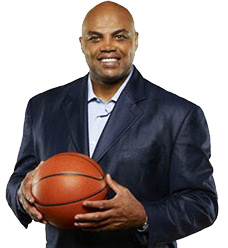In 2016, Charles Barkley marked Black History Month with a daily spotlight on local African-American heroes. Many of them didn’t make it into the history books or even the newspapers of their time. But their stories are inspiring and worth knowing. Here’s another look.
19
Caroline Still Anderson
Physician
Caroline Still Anderson
Physician
(November 1, 1848 – June 1 or 2, 1919)
The daughter of abolitionists, Anderson graduated as the youngest in her class and earned her B.A. at 19.
She taught elocution, drawing and music until 1875, when she decided she wanted to go into medical school.
After initially being rejected because of her race for an internship at Boston’s New England Hospital for Women and Children, Anderson went in person and awed the board, who unanimously voted to hire her.
She returned to Philly, opened her own dispensary and medical practice, and then began teaching hygiene and public speaking.
She also opened her own liberal arts school Berean Manual Training and Industrial School that was praised by W.E.B. DuBois, along with her other work for the black community in Philadelphia.
Anderson wrote in a letter to her husband before attending medical school, “I am tired of being so situated as to accomplish so little either for myself or anybody else.”
![]() EDUCATION:
EDUCATION:
- Institute for Colored Youth
- Oberlin College, B.A., 1867
- Woman’s Medical College of Pennsylvania, M.D. 1878
ACCOMPLISHMENTS:
- Started liberal arts college for African American community in Philadelphia
- Board member for Home for Aged and Infirm Colored People of Philadelphia
Organized black YMCAs - Elected first black president of Ladies’ Literary Society of Oberlin during her time at Oberlin College
- Supporter of temperance movement as president of the Berean Women’s Christian Temperance Union
FINAL WORD: Colleague of Anderson, Dr. Matthew Anderson said, “I cannot find words sufficiently expressive of her value to me in this work. For over thirty years [Caroline] has been my chief inspiration and unfailing support. When I would become weak and think of giving up the work because of the discouraging aspect she was always able to infuse in me new courage and zeal to go forward. Like myself, she was by birth and training peculiarly fitted for this work …. A burning zeal to assist in improving the condition of her race in every way, fitted her to be my companion in this work.”
Photo Credit: Wikimedia Commons/Frederick Gutekunst




